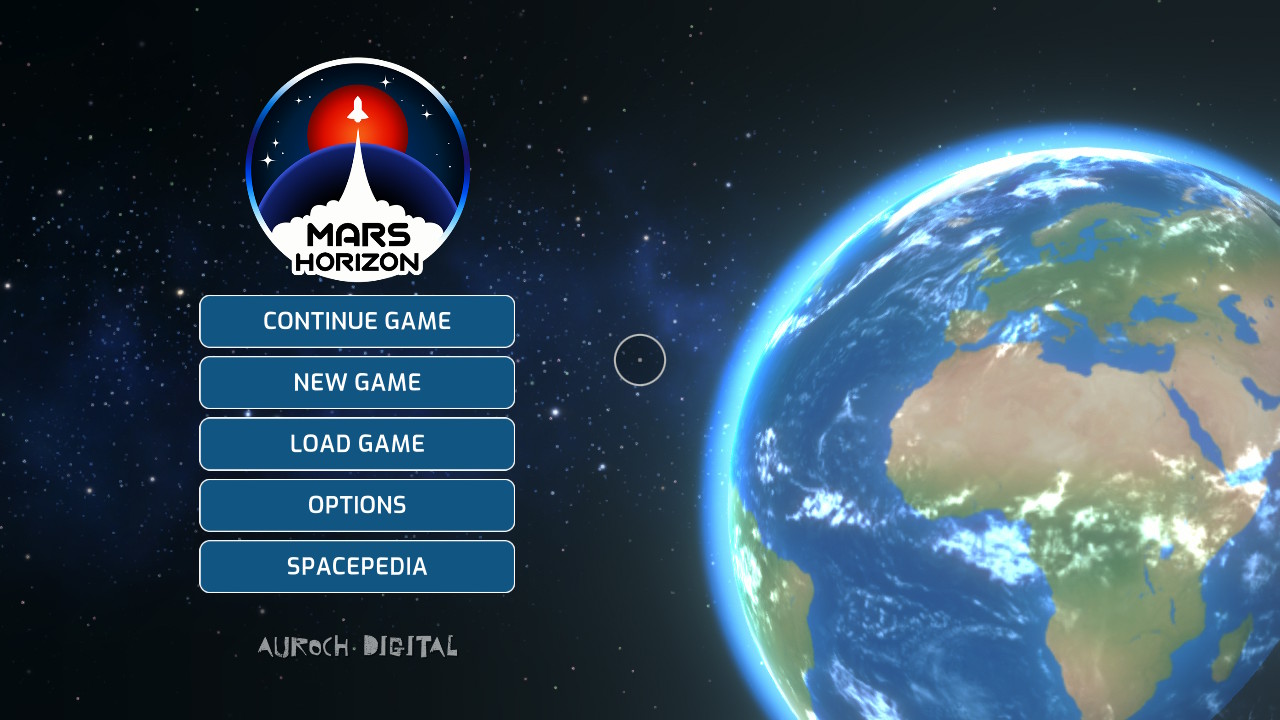Mars Horizon
Nintendo Switch
Developed By: Auroch Digital
Published By: The Irregular Corporation
Category: Simulation, Strategy
Release Date: 11.17.20
Composers: Matthew Walker
Thanks to splashy moves by SpaceX, the space race has recently been in the news more than it had in several years. But it started way back in the fifties, which is where today’s game, Mars Horizon for the Nintendo Switch, begins. Players can choose one of five historical space programs to control in a light 4X strategy-styled game. They must guide their organization through several milestones in the exploration of our solar system, and get to learn about the real-life history of space exploration in the process. Probably one of my favorite parts of the game is reading the Spacepedia entries, which nicely summarize the real-life history of the events, technology, and discoveries of humanity’s journey to the stars.
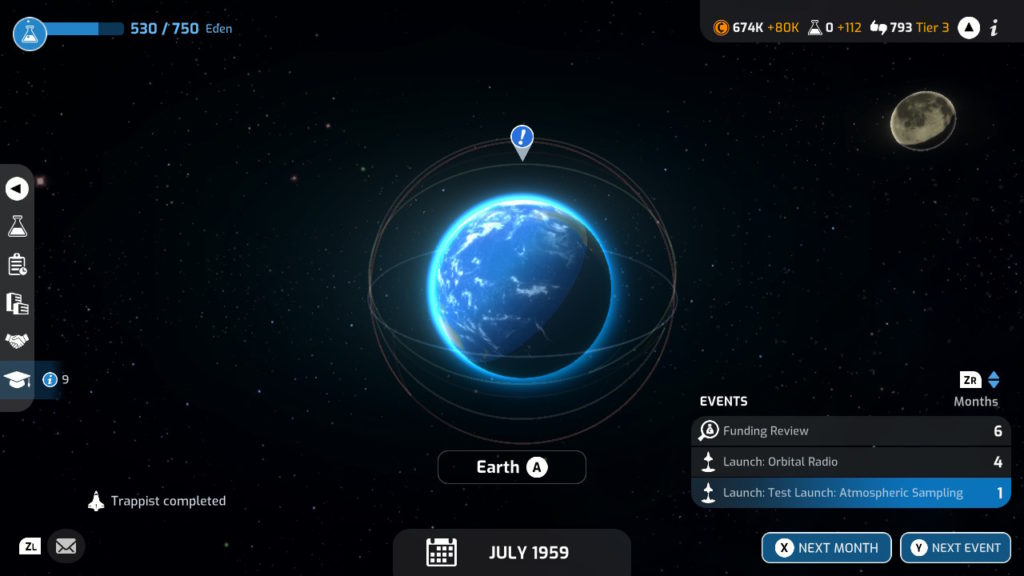
4X-Lite
Despite its historically informative elements, Mars Horizon is a management sim through and through. Players will be able to build structures in their base, construct rockets and payloads for missions, conduct research to unlock new missions and milestones, and manage resources to keep everything properly funded. Every action takes a certain amount of one of the game’s resource types – money, science, or support – and a certain number of turns. Every turn is a month in the game’s timeline, and every few years your budget will be reviewed. If your support if high enough, your agency’s budget will increase – but if your support drops, your budget decreases. Budgets are the only way to generate income, so successfully conducting missions to increase your support is essential to the game. Science has a base value generated by the structures in your base, but you also generate a temporary boost to science upon completing a mission.
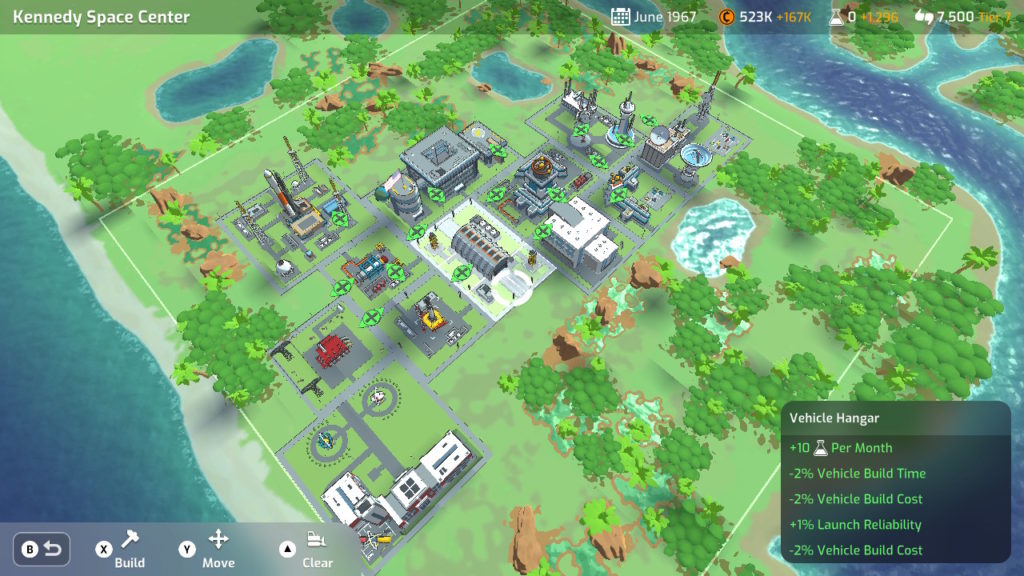
Of Course There’s a Tech Tree
Science is automatically spent on whatever research project is active. Research is broken into three categories; missions, buildings, and vehicles. Researching missions opens up new milestones and their related payloads for achievement. Completing milestone missions opens up new side missions to complete, which supplement your resource gathering efforts nicely. Building research unlocks newer, more advanced structures for use in your base facility. They effect things like build times and resource generation in exchange for their upkeep cost. Vehicle research unlocks new rocket boosters or upper-stage rockets for construction. The three research types are divided into four technological eras of space exploration, and most milestone missions will need you to unlock technology from their equivalent eras to be successful.
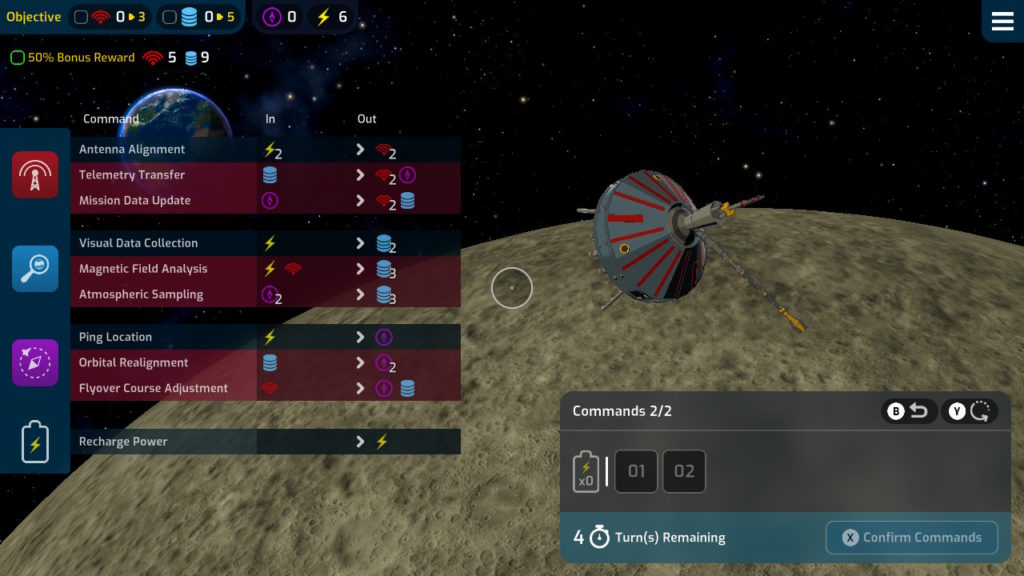
Mission to the Moon. And Mars. And Venus. And, Well, Everywhere.
All missions, whether they’re milestone missions, request side missions, or joint side missions, are divided into four parts; payload construction, rocket construction, launch planning, and the actual launch itself. The earliest missions don’t have a payload, I guess, but other than that there are four stages. In order to build a payload you must first research it in the tech tree, and the same goes for rocket construction. You can choose the parts for each new rocket every time, or save a certain setup that you think works best for each of the different mission ranges (orbital, moon orbit, Mars orbit, etc…). During launch planning, you will need to assign an astronaut crew (if the mission is manned), a training focus to increase either the mission’s resource yield or success probability, and pick a launch date.
Once launched, some missions have multiple phases you must guide your payload through. Your payload will have a certain amount of power and/or crew to use to generate special mission resources, and generating the proper number of those resources determines the success or failure of the mission. Hitting a certain bonus level of those resources will increase the amount of your reward for completing the mission. It’s fun and a little bit exciting to go through every phase of a mission; because of the way the resource generation is set up, it really does feel like every mission is an essential part of your progress, and therefore every step of planning a mission feels important as well.
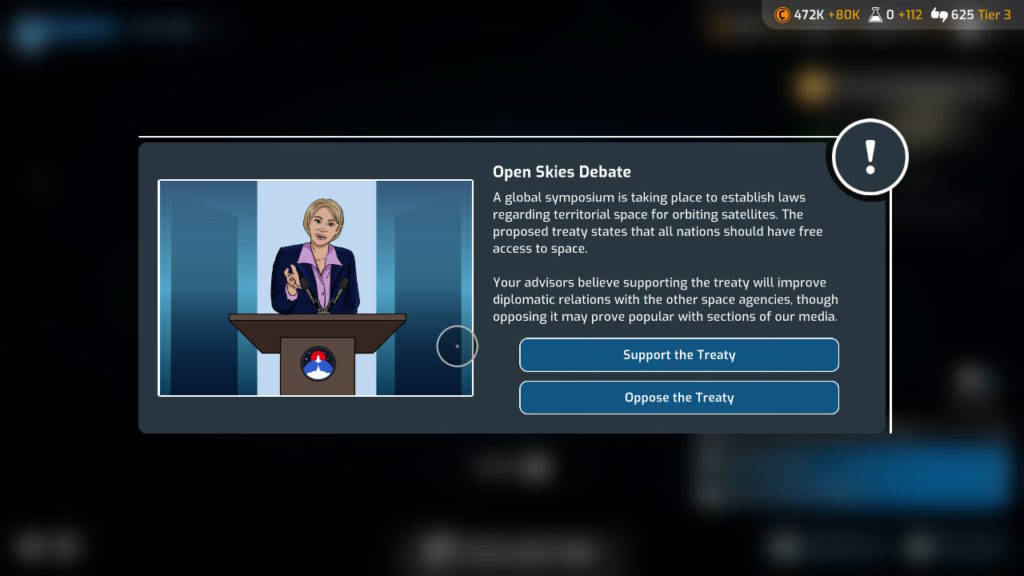
Making Nice With The Neighbors
Mars Horizon doesn’t exactly have the most robust diplomatic elements, but there are some present. Eventually, you can undertake joint missions with other agencies. Your relationship with these agencies determines how much money and resources each of you contribute to the mission, as well as how the rewards are split. Random events sometimes occur which offer you a choice; some outcomes will increase your relationships with other agencies or offer other benefits, but they will also sometimes carry a penalty.
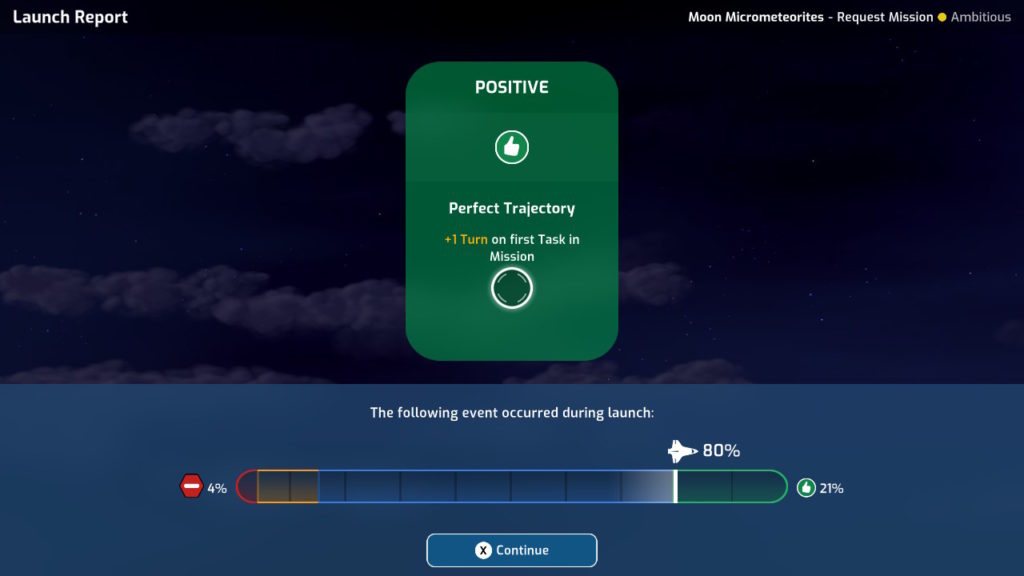
Random Number Agitators
The game’s biggest weakness isn’t its somewhat bland graphics. Certainly, the game doesn’t look amazing, especially during some of the launch cinematics, but it’s more than presentable. No, the game’s real issue comes from the inscrutable random number generators that govern the success or failure of every action. I absolutely loathe situations where preparation, planning, and skill mean nothing in the face of consecutive bad rolls, and that’s what we have with Mars Horizon, especially during mission phases with tight success requirements. It’s fine for board games, since they have a social element that minimizes the disappointment of failing just based on dumb luck. In a single-player experience, it’s just disheartening.
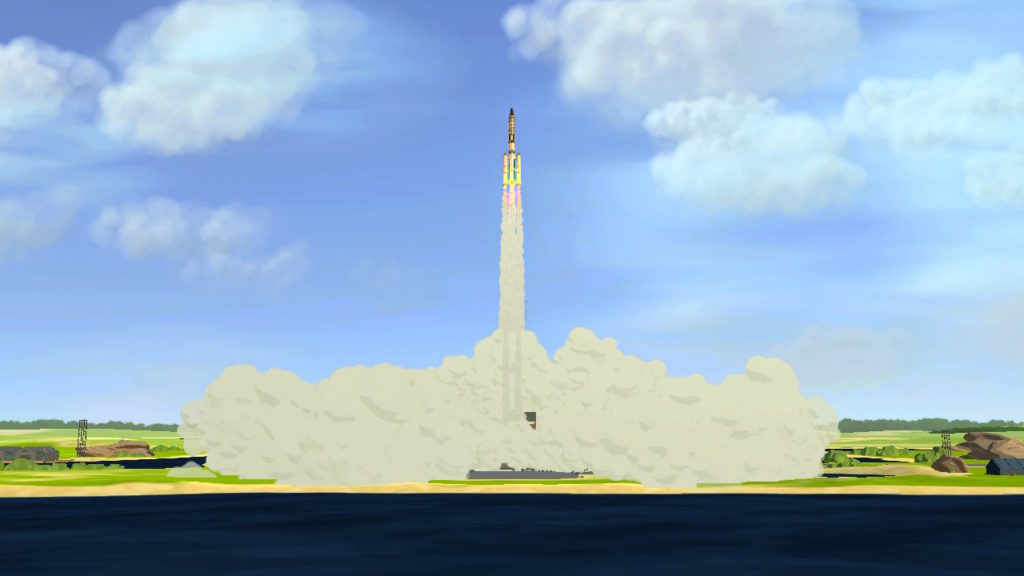
It’s Full of Stars
Mars Horizons has all the basics of a pretty fun, light management sim. It’s got an expansive tech tree, simple but not boring resource management mechanics, clear objectives, and a decent variety of activities. The graphics are fine if a little rudimentary, but certainly they won’t put anyone off. My only issue is that the game makes you wrestle with RNGs for too much of your success, which is a personal pet peeve that I just can’t get over. It’s a problem that doesn’t rear its head on every mission, but when it does things can get frustrating with alarming speed.





Mars Horizon
Digital – $19.99
Follow Auroch Digital

Follow The Irregular Corporation


The Switch Effect was graciously supplied a code for review purposes.
[Review] Backpack Hero – Nintendo Switch

Developed By: Jaspel Published By: Different Tales Category: Role-Playing, Simulation…

